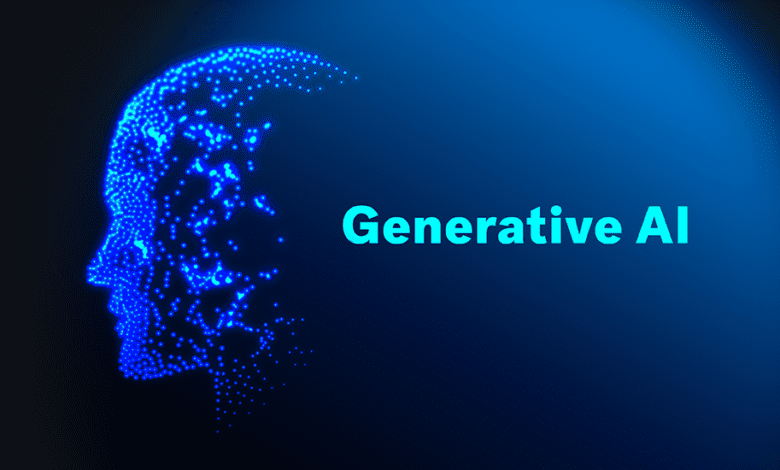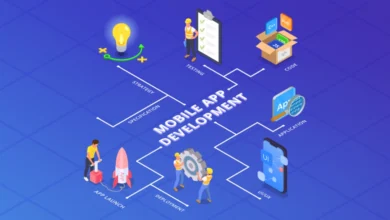Google Search and Generative AI: Is This The Future of Search?

In a world where information is at your fingertips, you constantly seek efficient and accurate ways to navigate the vast sea of knowledge. As technology advances, so does the realm of search engines, with Google leading the way.
But what if there was a future where Google Search could not only provide you with answers but also generate new insights? Enter generative AI, a cutting-edge technology that has the potential to revolutionize the way we search for information.
But is this truly the future of search? Stay tuned as we explore the possibilities and implications of combining Google Search with generative AI.
The Evolution of Google Search
Over the years, Google Search has evolved remarkably, revolutionizing how you find information online. From its early days as a simple search engine, Google has continuously improved its algorithms and user experience to provide more relevant and personalized results.
Introducing features like autocomplete, instant results and voice search has made searching faster and more convenient. Google has also prioritized mobile optimization, ensuring users can easily access information on their smartphones and tablets.
Furthermore, machine learning and artificial intelligence integration have allowed Google Search to understand user intent better, delivering more accurate results. With each update and innovation, Google Search strives to make finding information online as effortless and efficient as possible.
Understanding Generative AI
Generative AI is a powerful technology that enables machines to create original and unique content. It uses complex algorithms and models to generate text, images, or sounds that mimic human creativity.
This technology can potentially revolutionize various industries, including search engines like Google. With generative AI, search engines can produce more personalized and accurate search results tailored to individual users’ preferences and needs. Instead of relying solely on keywords and predetermined rankings, generative AI allows search engines to understand context and intent, providing more relevant and comprehensive information.
It also can generate content that is indistinguishable from human-created content, making it an exciting and promising tool for future search experiences.
Enhancing Search Accuracy With Generative AI
Improving search accuracy with generative AI can revolutionize how you find information online. With the power of generative AI, search engines can better understand user queries and deliver more accurate and relevant results.
By analyzing vast amounts of data and learning from user interactions, generative AI algorithms can generate content that matches the user’s intent, even when the query is ambiguous or lacks specific keywords. This means you can receive more precise answers to your questions, saving you time and effort in sifting through irrelevant search results.
Generative AI can also enhance search suggestions by predicting what you’re looking for based on your browsing history and context. Overall, by harnessing the capabilities of generative AI, search engines can provide a more personalized and accurate search experience.
Overcoming Challenges in Implementing Generative AI
Implementing generative AI in search engines poses several challenges that must be addressed.
One of the significant challenges is the need for large amounts of high-quality training data. Generative AI models require extensive and diverse data to learn from, and gathering such data can be time-consuming and costly.
Additionally, ensuring the accuracy and reliability of the generated content is another challenge. Generative models have the potential to produce misleading or biased information, which can have severe consequences for search results.
Moreover, the ethical implications of generative AI in search engines must be carefully considered. Privacy, data protection, and transparency must be addressed to maintain user trust.
Overcoming these challenges will require a collaborative effort from researchers, developers, and policymakers to ensure the successful implementation of generative AI in search engines.
Ethical Considerations in the Future of Search
Considering the future of search, it’s essential to address the ethical considerations that arise.
With the advancement of generative AI in search engines, there are concerns about privacy, bias, and the potential for manipulation.
Privacy becomes a significant concern as search engines collect vast amounts of personal data. Safeguarding this data from unauthorized access and ensuring user consent is crucial.
Additionally, generative AI algorithms must be designed to minimize bias and ensure fair representation in search results. Transparency in the search algorithm’s work is essential to building user trust.
Furthermore, preventing the misuse of generative AI to spread misinformation or manipulate search results is critical.
As the future of search unfolds, it’s necessary to navigate these ethical considerations to create a responsible and trustworthy search ecosystem.
Frequently Asked Questions
How Does Google’s Search Algorithm Work to Rank Search Results?
Google’s search algorithm works by analyzing various factors to rank search results. It considers factors like relevance, quality, and user experience. It also takes into account keywords, backlinks, and site authority. By considering these factors, Google aims to provide users with the most relevant and valuable results.
What Are Some Potential Applications of Generative AI Beyond Search?
Some potential applications of generative AI beyond search include:
• Creating realistic virtual environments.
• Generating personalized content.
• Enhancing creative processes.
• Improving customer service through chatbots that can understand and respond to natural language.
Can Generative AI Be Used to Enhance Search Accuracy in Languages Other Than English?
Yes, generative AI can enhance search accuracy in languages other than English.
What Are the Major Technical Challenges in Implementing Generative AI for Search?
The significant technical challenges in implementing generative AI for search include:
• Training the model on vast amounts of data.
• Ensuring language understanding and generation accuracy.
• Optimizing for real-time response.
How Does Generative AI Impact User Privacy and Data Security in the Context of Search?
Generative AI has significant implications for user privacy and data security in search.
It can analyze vast amounts of personal data, raising concerns about unauthorized access and potential misuse.
Conclusion
In conclusion, the future of search seems to be heading towards a combination of Google search and generative AI. This evolution can improve search accuracy by generating more relevant and personalized results.
However, ethical considerations also need to be addressed to ensure responsible use of this technology. As we progress, balancing advancements in search technology and maintaining user privacy and data security will be crucial.




